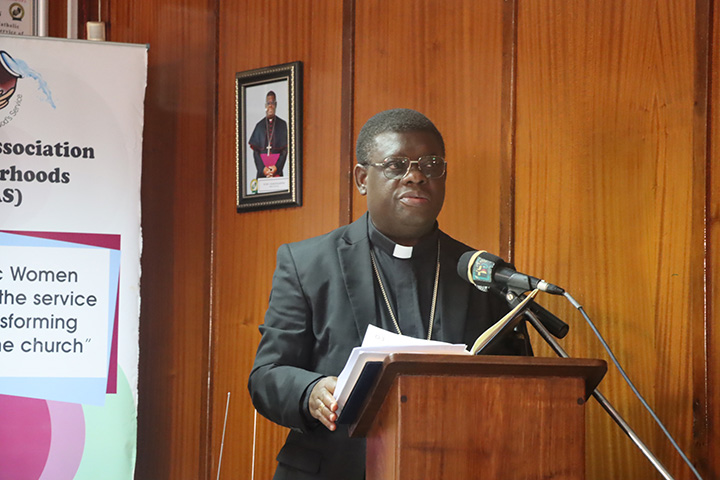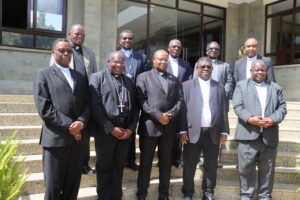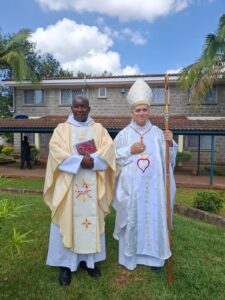AMECEA/CCC: AMECEA Emphasizes Prophetic Voice for Children and Families

AMECEA Chairman Bishop Charles Kasonde
Mwenya Mukuka
The Association of Member Episcopal Conferences in Eastern Africa (AMECEA) has issued a strong call for the empowerment of children and family apostolate in the region, asserting that they must be given a prophetic voice to safeguard their well-being. This sentiment was echoed by AMECEA chairman Rt. Rev. Charles Kasonde during the opening of a significant two-day AMECEA Convening centered on advancing family-based care for institutionalized children. The event, hosted in Lusaka, brought together delegates from Zambia, Malawi, Kenya, Uganda, Tanzania and Ethiopia.
In his address, Rt. Rev. Kasonde underscored the critical nature of the meeting, stating that it provides an invaluable platform to accurately examine the issue of child care and to delve into the historical context that led to the establishment of child care institutions. He also raised questions about the long-term effects of growing up disconnected from the nurturing embrace of one’s biological family.
“Given that children nurtured in such environments are often separated from their parents, siblings, and extended family,” Bishop Kasonde remarked, “we must contemplate the kind of individuals these care institutions are shaping. We are tasked with envisioning the holistic development of a child in such conditions.”
Furthermore, the chairman acknowledged the Catholic Church’s unwavering commitment to providing institutionalized care for children over the years. He credited numerous prominent figures in society to the efforts of Catholic care institutions, emphasizing that many might not have attained their present status without the resources, time, and dedication invested by religious brothers and sisters.
“For many years the Catholic church has been committed to institutionalized care of such children. In fact, some of these prominent men and women in society would not be where they are today if it were not for the care institutions which the Catholic Church runs. Brothers and Sisters have invested a lot of resources, time and energy to protect the vulnerable through care institutions. They have seen it all. They know how difficult it is to raise a child in such an environment,” he said.
While commending the achievements of Catholic care institutions, Bishop Kasonde advocated for a family-oriented approach to child development. He stressed that despite the positive outcomes witnessed within institutionalized child apostolates, a child’s optimal growth transpires within the folds of a family. He acknowledged that, due to circumstances beyond control, some children find themselves under the care of Catholic institutions overseen by Dioceses and Congregations.
“Despite the success stories of institutionalized child apostolates, we recognize that every child deserves to grow in a family environment. However due to factors beyond our control, some children end up in catholic institutions that are being run by Dioceses and Congregations,” he said.
In essence, the AMECEA Convening in Lusaka not only illuminated the achievements and challenges of institutionalized child care but also renewed the commitment of Eastern African episcopal conferences to prioritize the well-being and holistic development of children within the nurturing embrace of families.
As the two-day event continues, bishops from across the region engage in profound discussions aimed at paving a brighter path for the children and families of Eastern Africa, guided by the belief that every child deserves a secure and loving environment in which to thrive.
Ends///




